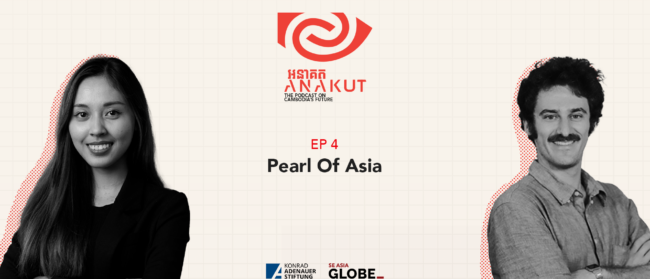Editor’s note: A fascination with the supernatural is by no means unique to Southeast Asia. But across the region, different cultural beliefs about spirits that linger in this world after death have long clashed and mingled. Now, with Western ideas about paranormal activity and the role that science can play in detecting and recording the traces of departed souls spreading across Southeast Asia, a new generation of ghost hunters has geared up and is ready to speak face-to-face with spectres.
It’s a Tuesday night in Singapore and we’re walking through a mangrove swamp. Our photographer stops suddenly. He just felt an intense chill on his arm, he says, adding that his “goose pimples are so hard they’re hurting” him.
Our guide nods and says that several people have seen a ghost in that exact spot, and coldness is said to be one of the indications of a paranormal presence. “About ten years ago, a woman committed suicide by jumping from a nearby observation tower,” he says. “Some visitors now say they feel cold or sad when they’re walking through the area. Or they see the woman’s spirit standing in the mangroves.”
Southeast Asia Globe is spending a night with two paranormal investigators from the Society of Paranormal Investigators: Jeremy Shiu, who goes by the ‘codename’ Wisely, and his colleague Jansen Juan, whose less mystical codename is Match80.
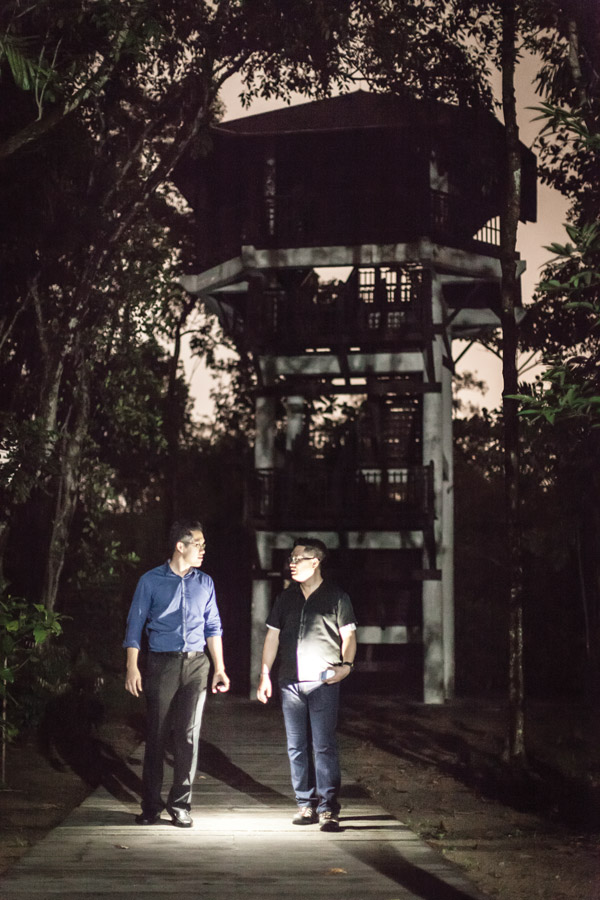
Shiu, who does most of the talking, is a well-dressed Singaporean in his 30s. By day, he works as a lecturer at the Institute of Technical Education; by night, he heads out to spot spirits.
I ask Shiu if he has ever seen a ghost at the swamp. He says he hasn’t. But he does launch into a different story: a few years ago he was a secondary school teacher and took his class to rural Cambodia. One night, one of the Singaporean students started speaking like a man, with a deep, loud growl. She was also speaking in a language no one understood, and her eyes were rolling back in her head. Then she became violent. It took six men to control her.
“She was possessed,” Shiu says with a stern expression. The girl sat next to her started acting in the exact same way. By the end, four girls were part of a “mass possession”. However, following much praying, the girls were fine by the next morning. “I think the spirit got tired of us,” Shiu adds.
It was experiences such as this that sparked Shiu’s interest in the paranormal. In 2003, he joined the Society of Paranormal Investigators, which had formed two years earlier and now has ten “agents” who perform tours and investigations. It’s not the only group in Singapore with an interest in the supernatural. There is also the Singapore Paranormal Investigators and the Asia Paranormal Investigators. The groups regularly take inquisitive individuals on spooky tours around the city-state. But, Shiu says, this is mainly to get money to fund their real work.
Members of the public often contact the groups asking them to investigate supposedly haunted homes or offices. The organisations each estimate that they receive at least ten requests per year.
“We try to detect anything abnormal,” Shiu says. These abnormalities can include sudden drops in temperature, infrared movements and high levels of electromagnetism, the latter captured using the industry-standard electromagnetic frequency (EMF) meter. The investigators also regularly conduct research in locations where one might assume unimaginative ghosts would congregate: cemeteries, abandoned buildings, dark forests.
Aside from our photographer feeling chilly, tonight’s ghost hunting is proving unsuccessful. Perhaps, like living beings, they’re wary of journalists.
After the swamp comes the nearby old Changi hospital. It’s abandoned and, at 10:30pm, with its cracked windows and fading exterior, it seems the ideal place to bump into a ghost. However, as Shiu disappointedly explains, we cannot enter. The hospital is state property and has been locked up.
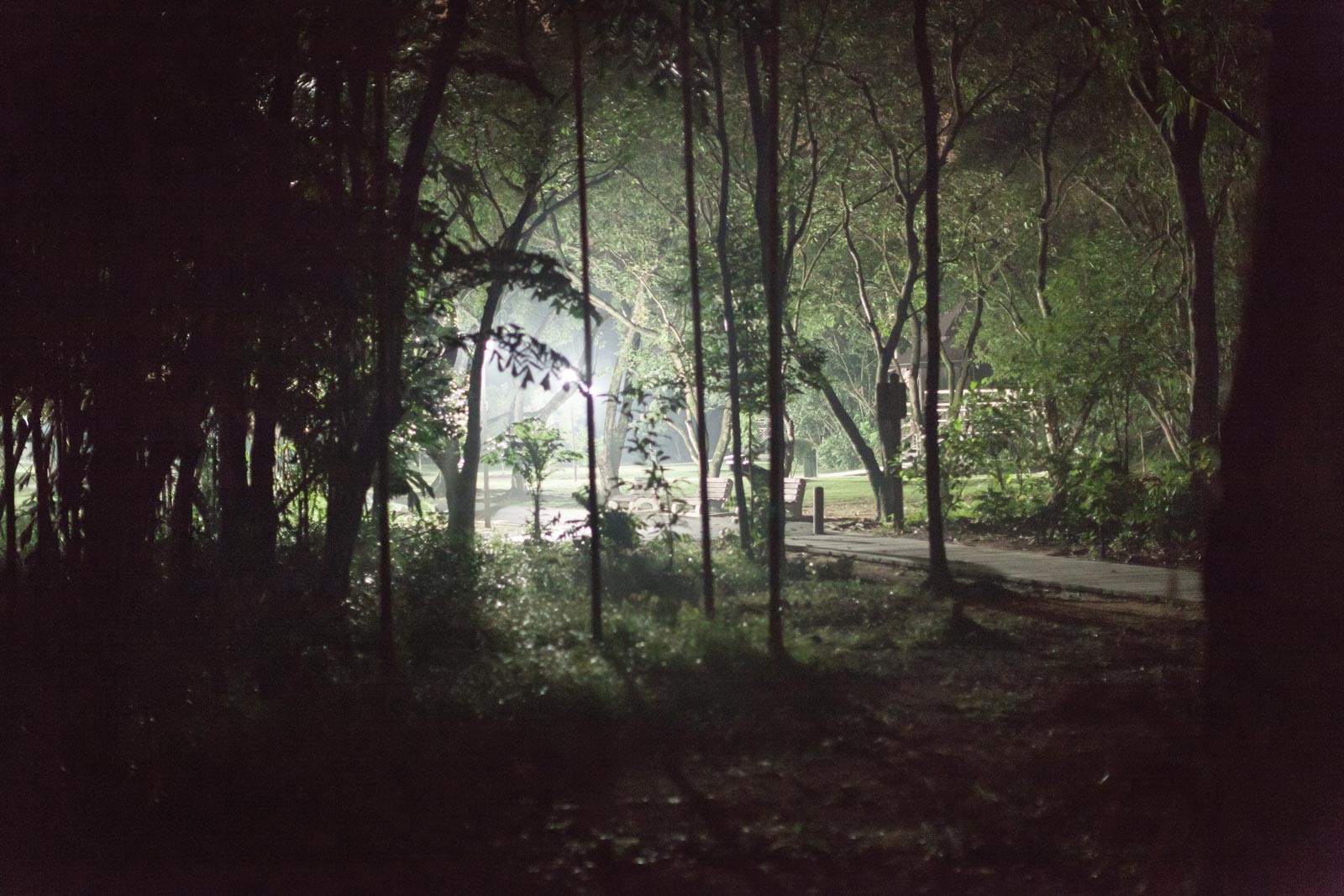
However, he adds, we shouldn’t feel too despondent; most of the time nobody sees anything on his tours.
Even if people think they have seen a ghost, “it’s often just their mind playing tricks on them”, he says. For someone who believes in ghosts and regularly hangs out in dark places courting them, Shiu seems overly keen to downplay the paranormal. He estimates that 80% of the times they are asked to investigate ‘haunted’ homes there is no paranormal activity.
“Once,” says Juan, “we were called to the house of a woman who said her kitchen appliances were malfunctioning and her food was going off quicker than usual.” The woman suspected spirits were responsible. “Do you know what was causing it?” he asks, pausing for effect. “Humidity.”
Two days later, Yasser Mattar is sat outside an upmarket coffee shop. He’s a member of the Singapore Paranormal Investigators, founded in 2001 by a former professor of Singapore’s famed Nanyang Technological University. Like Shiu, he says his paranormal investigations are not based on mere superstition but on what he describes as “paranormal science”. Though that seems oxymoronic, he insists his organisation “adopts scientific methods of enquiry: data collection, empiricism, hypothesis – the basic things you’d find in science textbooks. However, we also make some assumptions that most scientists would find hard to swallow.”
“People may think that Singapore is really modern, but most people still have these traditional beliefs.”
Jeremy Shiu
To help understand Mattar’s motivations and what he means by “paranormal science”, one must understand why he became interested in the subject. “I started off from a cultural perspective,” he says. “My mother is Chinese from Malaysia. Her daily life was beset with supernatural practices. Every day she would talk about someone cursing someone else or bad spirits causing this and that.” However, when he moved to Singapore, his friends were confused and scared by, or just sceptical of, his stories. “I wanted to see how different people dealt with the paranormal, and I wanted a more scientific perspective because, when all else fails, science comes in and provides an answer. But when science fails, that’s when cultural practices can offer answers. I see science and culture as interlocking and symbiotic.”
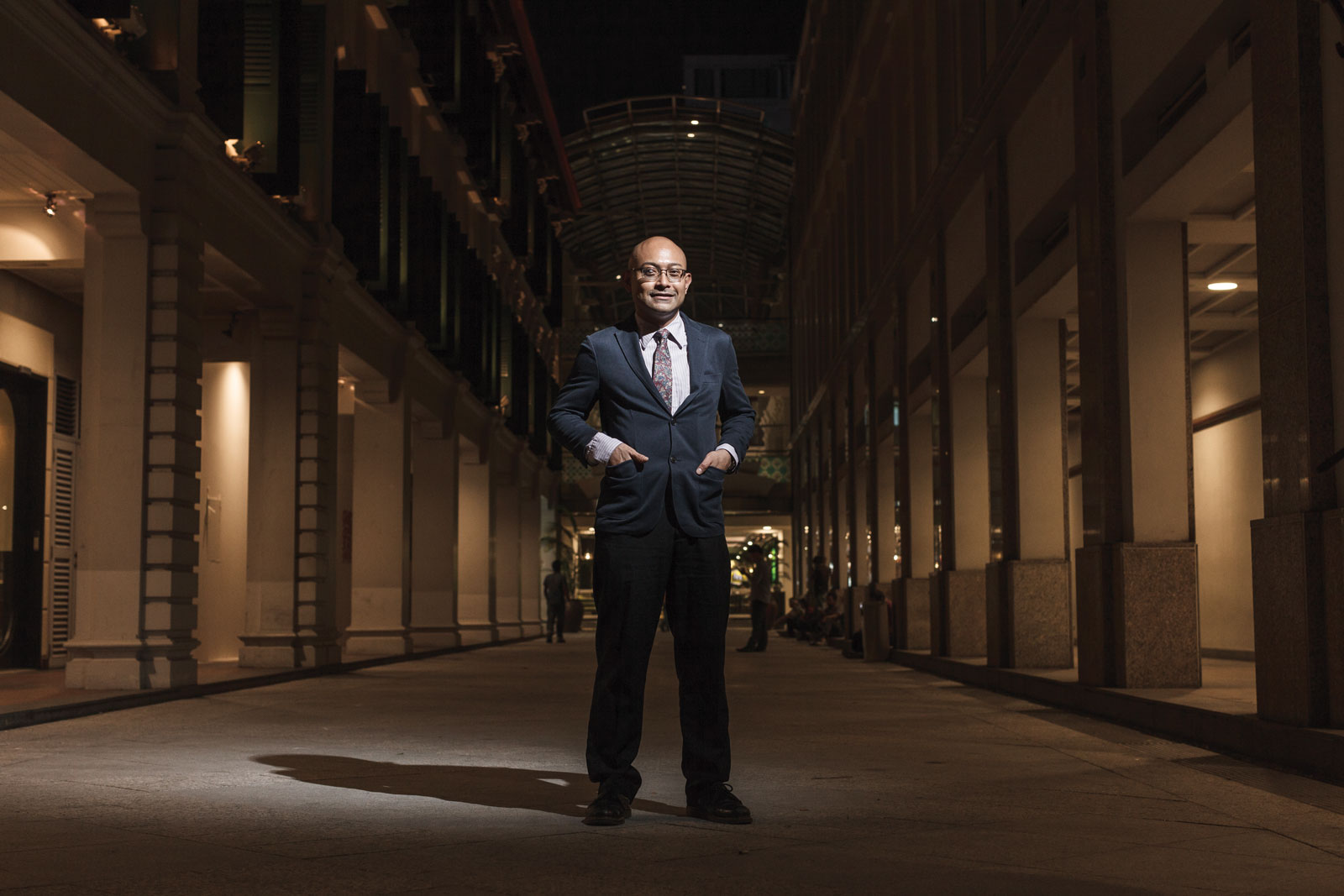
Mattar is something of an expert on the spiritual beliefs of different cultures. On the day we met, he had delivered a lecture at the National University of Singapore where he showed the students an image of a dead pregnant woman. “The Malay students were horrified,” he says. “In the Malay psyche, it’s taboo. The ghost of a pregnant woman is the most feared of all the Malay ghosts. It’s called a pontianak.” Malays believe it will haunt virgin men and families with babies in search of her deceased unborn. To ward off these ghosts, Mattar explains, a raw egg is placed under the armpit of the deceased woman during her burial, so the ghost will think it is her baby.
As well as ethnic Malays, who make up approximately 13% of Singapore’s population, 74% of Singaporeans are ethnic Chinese. According to Juan, Chinese Taoists believe in two types of ghosts: those that are left behind when someone passes away, and those that are reincarnated through samsara, which is when someone comes back as a ghost as punishment for misdeeds in a previous life.
Unlike in the West, he adds, where belief in spirits and ghosts might be seen as odd, in Singapore spirits are such a part of everyday life for most people that there is nothing paranormal about it. Belief in spirits is, in fact, rather normal.
Mattar says that Singaporeans sometimes even take on paranormal beliefs through interaction with other cultures. “Muslims do not believe in the existence of ghosts,” he says. “They have jinns, which, unlike ghosts, are [non-human]. They are entities on a parallel plain to us that can be good or bad.”
However, he adds, many Muslims in Singapore have come to believe in ghosts. “They’ve encountered something they can’t explain, and they say: ‘My Malay friend says it’s a ghost, so I believe in ghosts.’”
As our interview comes to an end, Mattar suggests we visit one of the city’s oldest cemeteries, Bukit Brown. What Mattar neglects to mention is that most of the cemetery no longer exists. Graves have been exhumed, and a bypass extension that will cut through most of it is in progress.
When you’re using a Ouija board, it’s supposed to be taboo to ask a ghost: ‘How did you die?’ or ‘Where are you now?’ But we always ask them. And we’re still here
Jansen Juan
Our taxi driver, Marvin, spends a fruitless hour searching for the cemetery’s entrance.
During the drive, he explains that, due to a growing population and limited space, most Singaporeans only have a ten-year lease on graves. After that, the corpses are dug up and cremated, making way for the newly deceased. “Everyone ends up getting burned,” Marvin says.
“Old spots like the cemetery have to make way in the name of progress,” Mattar says in response to our unsuccessful investigation. In fact, he says, the paranormal industry is suffering from the city-state’s urbanisation.
“We’re getting fewer and fewer places to visit because a lot of the spots that were previously considered haunted have new buildings in their place,” he says. “But it’s not just about the ghosts being chased away. It’s also about collecting data; we cannot collect electronic voice phenomena (EVP) with traffic noise or electromagnetic forces when there are mobile phones.”
Another offshoot of Singapore’s modernisation is the convergence of traditional beliefs with Western culture. “For the older generation, they treat spirits with respect. They don’t disturb the ghost,” Mattar says. “But a lot of the younger Singaporeans are more [gung-ho]. They want to chase ghosts and, like in Western movies, they shout: ‘Show yourself! I dare you to show yourself!’ Which might anger a ghost. In our organisation, we exercise caution. Or else shit happens.”
“What kind of shit happens?” I ask.
Two months ago, he says, he and the Singapore Paranormal Investigators were taking some railway workers on a tour of a cemetery. Perhaps they were being too boisterous, and suddenly their electromagnetic meter went berserk. “I was scared,” Mattar says. It was a stronger reading than usual, indicating a strong paranormal presence. He was eager to leave but, he points out, one must have the permission of the ghost before doing so. “If you don’t, it could follow you home. We’ve had agents who ignored this and were followed home, and then the ghost appeared in their dreams,” he says ominously.
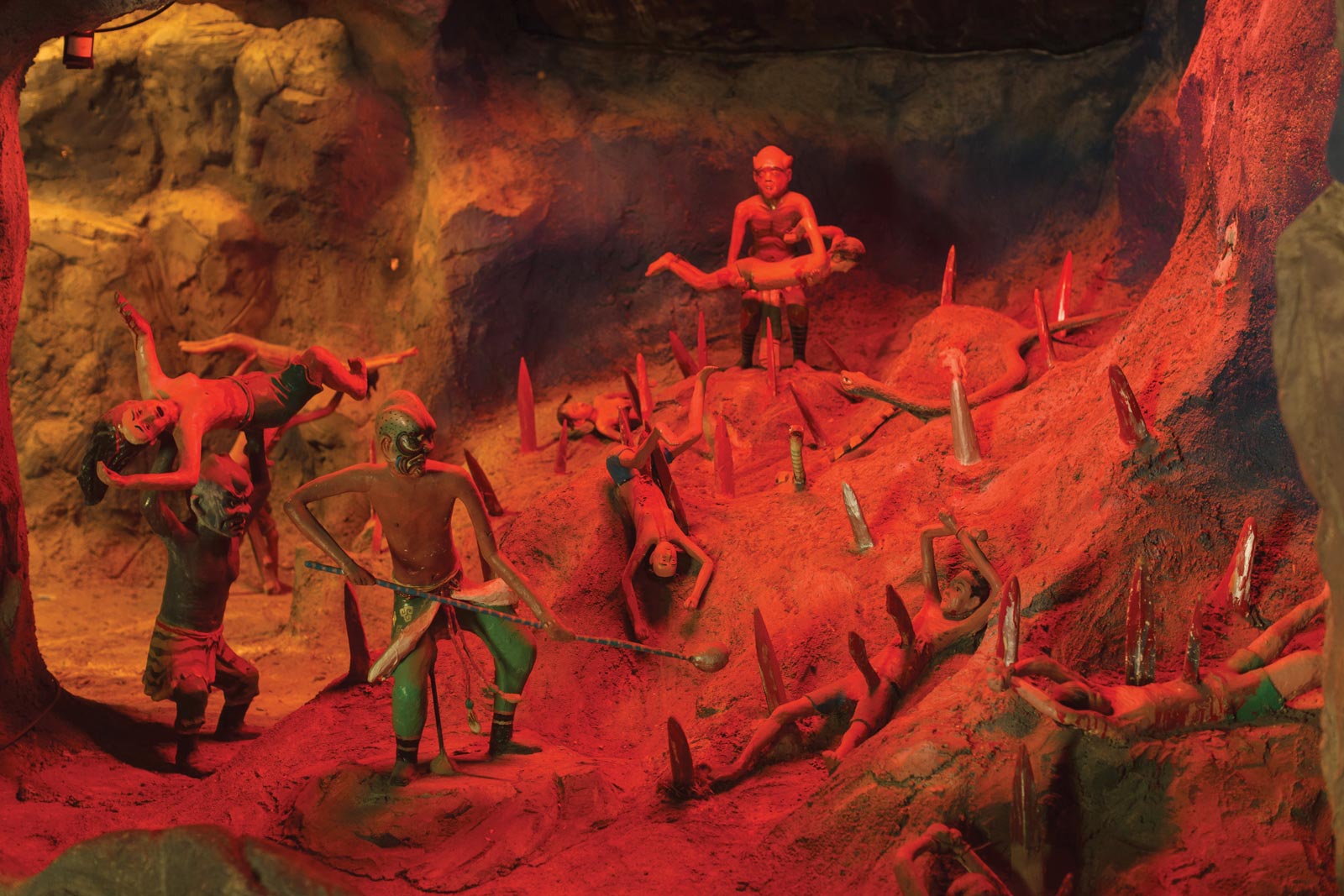
The rival Society of Paranormal Investigators, however, does not believe in placing limitations on what should or shouldn’t happen during a supernatural investigation. They say shit never happens.
Shiu remembers a Ouija board session in a Vietnam hotel room a few years ago. “It’s nothing like you see in films,” he says. He means that letters do not suddenly and dramatically spell out words communicated by spirits.
On this occasion, however, they had some luck. “So we tried to call a spirit,” Shiu says, pausing for effect. “And guess what? The spirit claimed to be Ho Chi Minh.” With one friend checking Uncle Ho’s Wikipedia page, the group asked the spirit several questions. “We asked for his date of birth, what he did as a child, where he was between certain dates, and he got it all right.”
The only questions that the spirit answered incorrectly were when Ho Chi Minh died and who won the Vietnam War. “He didn’t give a specific answer for that last question. He gave a very political answer,” Shiu says. “So people ask: ‘Do you really believe you were talking to Ho Chi Minh?’ I don’t know. Maybe some other spirit was just pretending to be him.”


